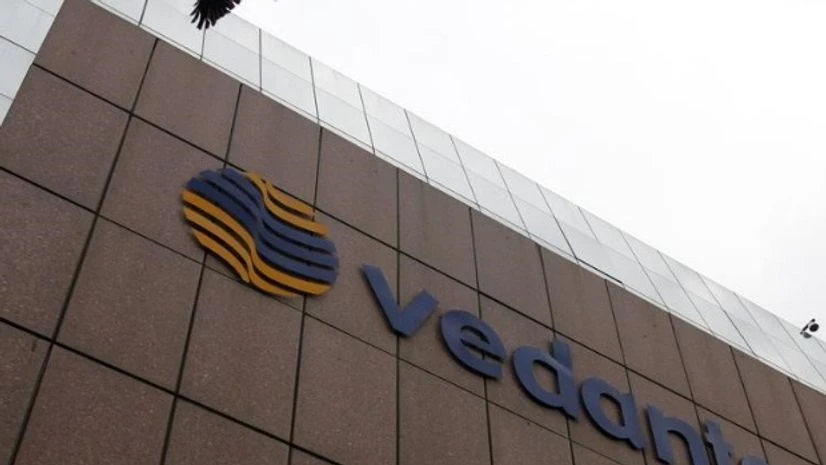In a setback to mining mogul Anil Agarwal, the government on Monday said he can merge subsidiary Cairn India with his flagship firm Vedanta Ltd only after paying for the shares the Income Tax Department has attached following the Rs 10,247-crore tax dispute. A top government official said the merger can go ahead if the 9.8 per cent shareholding of Cairn Energy attached by the income tax (I-T) department is paid for or an equivalent bank guarantee is furnished or approval is given for issue of fresh shares.
Vedanta Group had in 2011 acquired Cairn India from its British promoters, Cairn Energy Plc, and last year proposed to merge the cash-rich firm with BSE-listed Vedanta Ltd. However, a tax demand on both Cairn Energy Plc and Cairn India under a retrospective legislation is now posing as a hurdle to the merger. Clarifying on the issue, Revenue Secretary Hasmukh Adhia said, “The only constraint in this case could be that the shares of Cairn Energy in Cairn India cannot be alienated without the permission of the Government of India... However, the merger can take place subject to the law of land once this issue of attachment is resolved. Under the Section 281 of the I-T Act, you cannot dispose of shares without permission of the Tax Department.”
Read more from our special coverage on "VEDANTA-CAIRN MERGER"
The I-T Department, using the retrospective tax legislation, had issued a Rs 10,247-crore tax notice to Cairn Energy in January 2014. In February this year, the department issued a final assessment order seeking over Rs 29,000 crore in tax from Cairn Energy, including Rs 18,800 crore in interest.
In an emailed response to Business Standard, a Vedanta spokesperson said, “We have spoken to the revenue secretary and he has clarified that the government is not against merger. This is a commercial matter. The government said it does not want to come in the way of business and there is no such proposal not to allow merger of Cairn India with Vedanta Limited. Government is concerned with protecting share of Cairn Energy Plc, which is attached currently.”
In a statement issued last month, Cairn Plc made it clear that any tax recovery by the Indian government would be limited to about Rs 3,216 crore ($477.5 million) assets of its subsidiary Cairn UK Holdings Ltd (CUHL). The company had said it strongly contested the attempt to retrospectively tax the group for an internal restructuring. “The total assets of CUHL have a current value of $477.5 million (comprising principally the group’s 9.8 per cent shareholding in Cairn India) and any recovery by the Indian authorities would be limited to such assets,” it stated.
The Union finance ministry issued a tax notice to Edinburgh-based Cairn Energy Plc for additional Rs 18,800 crore interest to be paid against Rs 10,200 crore tax demand made on the company two years back. The interest amount is 84 per cent higher than the original demand, almost doubling the tax liability.
CUHL, a direct subsidiary of Cairn Energy PLC, received the assessment order from the income tax department relating to the intra-group restructuring undertaken in 2006, prior to the initial public offer of Cairn India. The order was sent just days before the Union Budget cited a retrospective amendment to the tax law introduced in 2012 by the UPA government.
On whether the tax liability can have an impact on the merger since it is on the now minority shareholder, a senior tax lawyer said, “It is absolutely absurd for the government to stop the merger due to tax liability issue. The merged entity — which would be situated in India only — would obviously have the liability and it can resolve the dispute later with the government as it deems fit.”
Another lawyer, who handles mergers and acquisitions said, mergers need approval of the high court. “The Ministry of Corporate Affairs (MCA) has an internal mechanism through which it asks the Income Tax Department’s opinions too. So, the tax department may tell High Court (via MCA) that this merger is against the national interest as it would lead to tax evasion. That is one way to put a spanner in this merger.”
The government has also been stopping mergers or acquisitions by telling the company that it would not provide further approvals or licenses for exploration etc. “Company generally buckles under pressure, as it knows that the merged entity will face immense challenges from the government itself,” said the lawyer.
Third way with the tax department is to file an impleadment application before the high court.
“If such an application is accepted by the high court, then tax department would also become an interested party in the merger case between two companies. The tax department’s arguments would also be heard. This method is not generally used by department, but who knows, in such matter which involves thousands of crores, the department may use this too,” the lawyer added.
Finance Minister Arun Jaitley offered dispute resolution to the company saying the scheme was subject to the concerned company agreeing to withdraw any pending case lying in any court or tribunal or any proceeding for arbitration, mediation etc. under bilateral investment promotion and protection agreements (BIPA). Cairn Plc has already initiated international arbitration proceedings under BIPA and has claimed full compensation for the $1 billion erosion in shareholder value, Simon Thomson, chief executive, Cairn Energy PLC said in his post-result statement. The company has alleged that the Indian government expropriated its property “without adequate and just compensation”, denied fair and equitable treatment in respect of its investments and restricted Cairn’s right to freely transfer funds in connection with its investment.
Anil Agarwal-promoted Vedanta Group had acquired Cairn India from its British promoters, Cairn Energy Plc, in 2011. Last year, it announced Cairn India’s merger with BSE-listed Vedanta Ltd. It expects to complete the merger by June this year.

)
